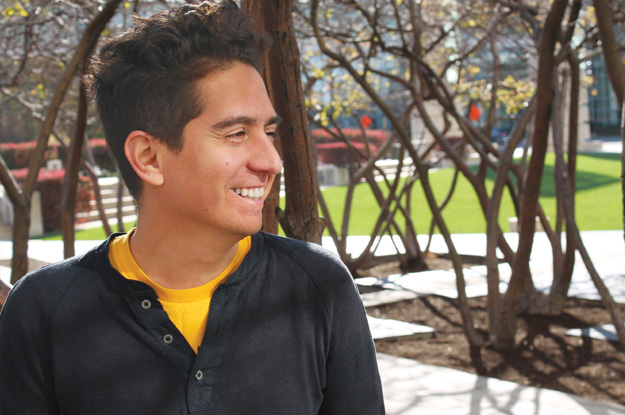This article is adapted from AQ’s most recent print issue | See the rest of our Top 5 Latin American Storytellers | Leer en español
A recurring childhood memory haunts Daniel Alarcón: the night in 1989 when he heard that his uncle, a labor union activist in Peru, had disappeared and would almost certainly never come home. For Alarcón, who was 12 years old and living in a suburb of Birmingham, Alabama, that moment would shape much of his career as a journalist and novelist: the stories he’d chase, the characters to whom he would give life.
Indeed, the decades of unrest and repression that left thousands “disappeared” in Latin America inspired his first two books: a short story collection titled War by Candlelight and a novel, Lost City Radio. In those and in later works, he portrayed the dystopic worlds of rioting inmates in a lawless prison, a guerrilla in the Peruvian Amazon and Los Angeles gang members, “people who do things I’d never be capable of trying, because I’m a shy person,” Alarcón, now 41, told AQ.
His attraction to characters who live at the margins of society might also be explained as a reaction to his “boring” suburban childhood in Alabama, where his physician parents moved the family from Peru when he was three. At home they would communicate in Spanish, except when his father insisted the kids listen to the radio and imitate the proper, staid American accents on NPR. He never imagined that decades later, in 2011, he and a group of friends would create Radio Ambulante, NPR’s first non-English podcast. He likes to describe his award-winning show as This American Life in Spanish.
His short stories and narrative journalism have appeared in Latin American magazines like Etiqueta Negra, as well as Harper’s Magazine and The New Yorker — which in 2010 named him one of the “20 Under 40” fiction writers worth watching. However, Alarcón refuses to label himself a novelist, journalist or radio host. “I like to be an observer,” he said, “to understand those things people say without words. I like to become invisible in a story. The best praise you can give me is to call me a narrator.”
—
Hernández-Tapia is a journalist based in New York





